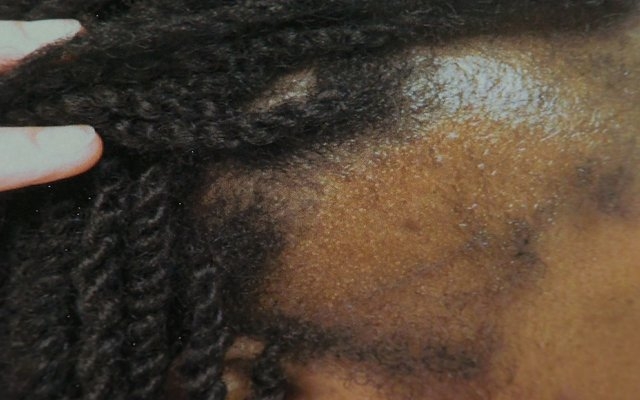Hair loss not just a male problem

Hair loss is just as common in women, and it can occur due to factors such as genetics, and the hairstyles and hair products used by women.
It's important to identify the cause of hair loss in women to treat it, said dermatologist Dr. Paradi Mirmirani.
"Making sure you have the right diagnosis is critical for successful treatment," Mirmirani said in an American Academy of Dermatology news release. "However, to an untrained provider, this can be tricky, as hair loss can have many causes."
Female pattern hair loss is one type and features pronounced thinning on top. It's primarily caused by genetics, certain hormones, age and menopause. Treatment options include topical or oral medications, hair transplants and camouflaging thinning areas.
Another type is marginal alopecia, which is hair loss along the edges of the hairline. One form of this is traction alopecia, which is caused by hairstyles that pull the hair tight, such as cornrows, weaves and tight ponytails or buns.
Hair transplants and medication such as minoxidil can help the hair grow back, but changing hairstyles is necessary to stop the hair loss, according to Mirmirani.
"Regardless of your lifestyle, if your hairstyle is causing you pain, it's not good for your hair," Mirmirani said. "If you need your hair pulled back, work with your hairdresser to find a style that doesn't put pressure on your scalp."
Overuse of heat or chemicals on your hair over a long period of time can also cause hair loss.
"For the most part, people can dye, perm or heat their hair with no ill effects, but chronic use or using more than one of these treatments at a time can lead to hair loss," Mirmirani explained.
"No matter the type of hair loss you have, seek treatment as soon as you notice it," she advised.
"I often see women who have delayed seeing a dermatologist because they didn't realize their hair loss is caused by a medical issue or they didn't think it's treatable. However, it's important for women to know that most cases of hair loss can be stopped or treated," Mirmirani said.
Source: www.webmd.com
Source: David Apinga
Trending News

Jospong Group partners with Ghanaian scholars in diaspora to boost Ghana’s growth
16:22
Police foil highway robbery, gun down 3 suspects, retrieve 7 weapons
17:38
Ama Mawusi Foundation donates 600 food packs to street children in Greater Accra
16:11
Nation-first, principled and people-centred leadership wins us elections, and Bawumia stands for it – Akosua Manu to NPP
11:57
Jospong Group Chairman spreads New Year cheers with food, cash gifts for over 5,000 Ghanaians
16:06
MP raises insurance, public safety concerns after DVLA suspends new number plate system
11:52
Ghana to discover oil in Northern, Central and Volta Regions - Prophet Stephen Ask-Ackrong reveals
13:40
Bawumia doesn't want a single drop of blood to be shed on account of his personal ambition – Akosua Manu
11:39
Bawa Rock only successful applicant among 31 aggregator bid-Sammy Gyamfi reveals
00:58
Ebo Noah remanded, ordered to undergo psychiatric assessment over doomsday flood prophecy
14:40




